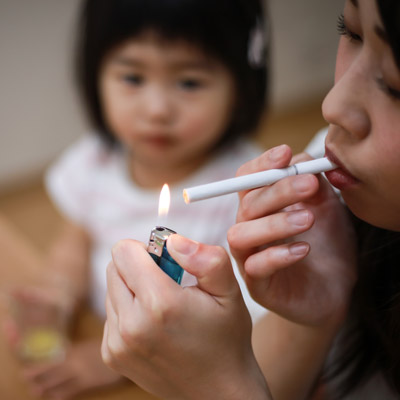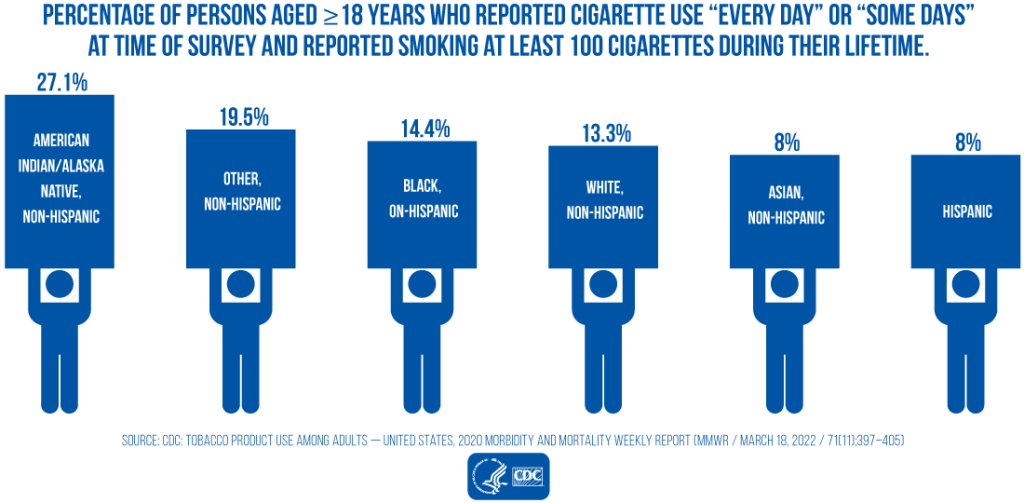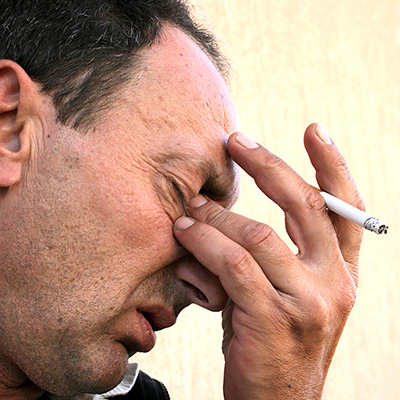Why Do People Smoke?
Smoking causes cancer. But what causes smoking?
The link between tobacco and cancer is very well established. Decades of research show that smoking increases the risk of at least 15 different types of cancer. And it’s not “news” anymore. When prompted, 94% of US adults recognize smoking as a risk factor for cancer.
We know that smoking is more common in some populations than others. But if most people know that smoking is bad for them, why do they smoke?
This question is fundamental to understanding inequalities in cancer, and the answer is very complex.

Around 4 in 10 cancer cases are preventable through activities such as avoiding smoking and keeping a healthy weight.

So, why do we continue to put our health at risk if we know how to be healthy?
For people who smoke, it’s not as simple as avoiding cigarettes because they’re unhealthy and costly. Some people are more likely to try a cigarette than others, and often uncontrollable factors can make all the difference. For many, that first puff paves the way to long-lasting addiction.
Why are some people more likely to smoke?
The factors that underly health and health behaviors are many and complex. These include the pressures and opportunities people have faced over the course of their life, as well as their current circumstances, collectively known as the wider determinants of health.
There are several forces at play, and it’s important to note that most people who start smoking do so as children.
Cigarettes have been engineered over time to be as addictive as possible. So if you start using them as a younger person, by the time you are older you are often so addicted that it is incredibly difficult to quit – especially without the proper support.
Children’s exposure and access to tobacco is determined by both environmental and social factors. And one of the most powerful determinants is the family environment – particularly parental smoking.
If your parents smoke, you are much more likely to smoke and continue to smoke. And a cycle is created.
A child born and raised in well-off areas in the US is going to be more protected from factors which make a child want to try a cigarette. This is most noticeable when compared to a child raised in more deprived areas.
What might this look like in real life? A child living in a more deprived area might live with someone who smokes, grow up close to more shops that sell cigarettes, be exposed to more tobacco imagery in the media, and have friends who smoke.
Seeing something regularly can make that thing seem more normal and less risky. Even if children are told that cigarettes are health risks, they are less likely to avoid cigarettes if they see them in media, for sale where they live, or see family and friends who have been subject to the same pressures.

Smoking and Mental Health
Of course, it’s not just the industry which puts some groups at higher risk of tobacco harm. There are many other reasons for higher smoking rates in some marginalized groups, as indicated by the infographic below provided by the CDC:

For example, both LGBTQ+ groups and more deprived groups are more likely to experience mental health difficulties compared to the general population. And people living with mental health conditions are, themselves, at a higher risk of smoking.
These overlaps are not mere coincidences. Inequalities in health, economics, and social marginalization are all inextricably linked. We need collaborative action across government and society to address health disparities. But it’s also important to look at the direct drivers of smoking within specific groups.

Another memorable telehealth session was with my pain management specialist. While she was very seriously looking at my MRI’s on her other computer screen, a little voice appeared in her background: “mommy, mommy, I got it!” After positively affirming her daughter, my pain management specialist sheepishly looked at me and said in a smile, “she’s been working on that tooth all day. Sorry, I guess it’s the nature of telehealth”.
What can people who want to stop smoking do?
With wider determinants in mind – along with targeting by the cigarette industry, and access to support services varying greatly – it’s no wonder some groups find it difficult to be healthy, and are more likely to use tobacco and be affected by tobacco-related cancers.
Knowing about the wider determinants of health can sometimes feel disempowering. With such powerful forces at play, is there any hope for someone who is trying to reduce their own risk of cancer by stopping smoking?
There are things that an individual who smokes can do to increase their chances of successfully quitting.

